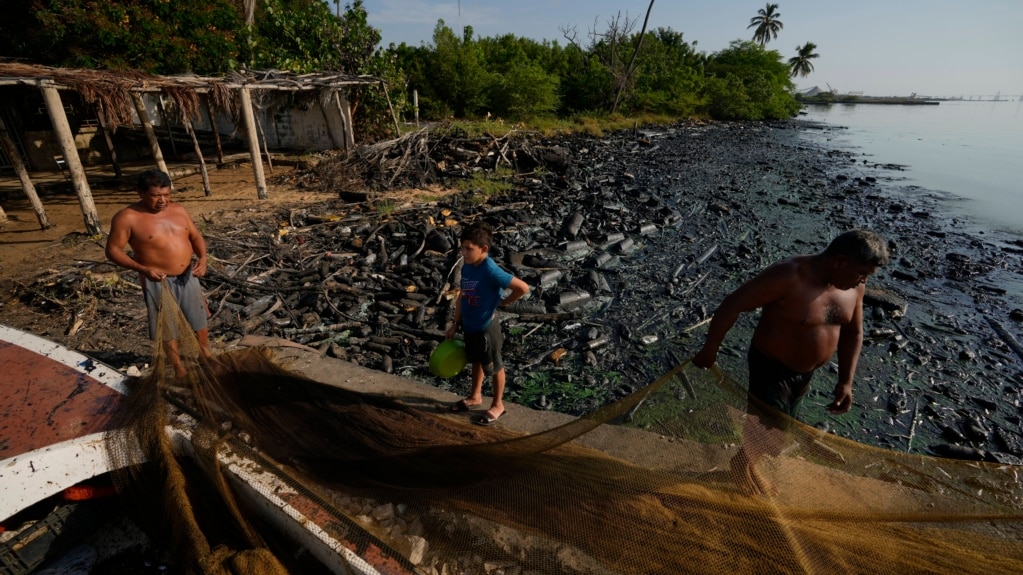Fishermen who work on Venezuela’s Lake Maracaibo say fish stocks are decreasing as pollution grows worse.
Lake Maracaibo is 600 kilometers west of Venezuela’s capital Caracas. It is a center of Venezuela’s oil production.
But environmentalists say it is becoming a polluted wasteland. They blame too much oil exploration, poor maintenance, outdated infrastructure and a lack of waste treatment systems.
There are thousands of kilometers of pipelines under the lake and oil leaks take place often.
The lake is fed by many rivers and streams. But it also receives wastewater from Zulia, Mérida and Trujillo states, where 5.3 million people live. Waste from the most distant state of Norte de Santander also drains into the lake.
Beltrán Briceño teaches at the University of Zulia and is head of the research laboratory in the town of Maracaibo. He said fertilizers, human waste and other chemicals flow into Lake Maracaibo. This leads to high concentrations of nitrogen and phosphorus. These substances support the growth of cyanobacteria, which can have poisonous effects on water animals and humans. Cyanobacteria, or blue-green algae, are linked with mass fish deaths.
Jose Aular is a 61-year-old fisherman. He said fish do not come near the shore because of the algae. He also said the water has caused his skin to become unhealthy with a rash.
In the early 1900s, Lake Maracaibo was the heart of Venezuela’s oil industry. Environmentalists say the pollution worsened in the early 1930s, when a canal was dug and connected the lake with the Caribbean Sea. The project permitted large oil tankers to navigate the lake but also let seawater into the lake. This killed some freshwater life.
Yordi Vicuña is a 33-year-old fisherman. He said that in the past, “you could go out fishing and catch 700 (kilograms) of shrimp.” But now, he said, it takes fishermen several days to catch only eight kilograms of shrimp.
Fishermen avoid using their nets because they fear they will be damaged. Crude oil covers boats and damages fishing nets and boat motors, Vicuña said.
Briceño said many years of worsening pollution are being felt near the lakeshore with bad smells, oil slicks and poisonous algae.
Briceño warned, “There is no magic formula” to rescue the lake if people continue to pollute it.
I’m Mario Ritter, Jr.

